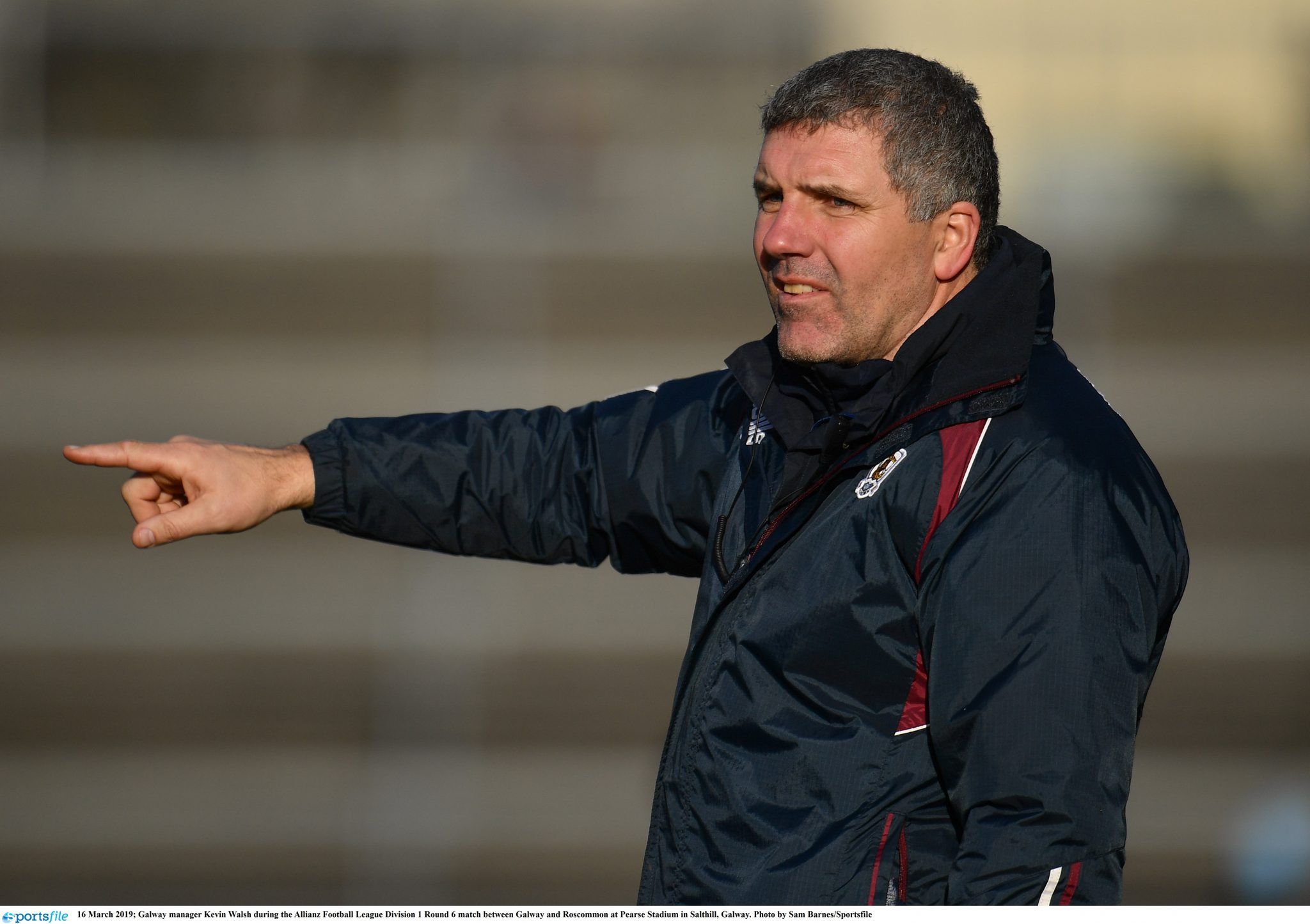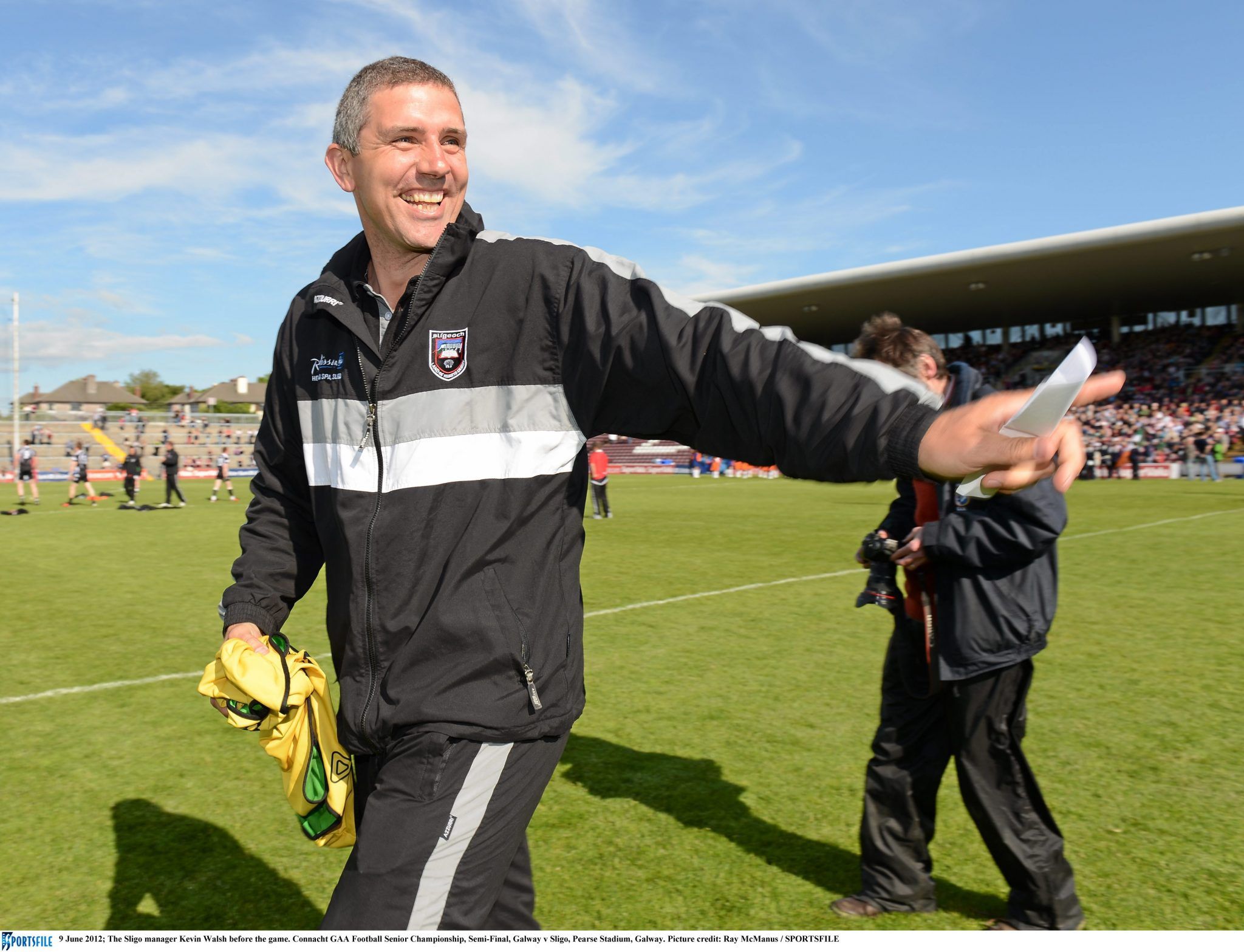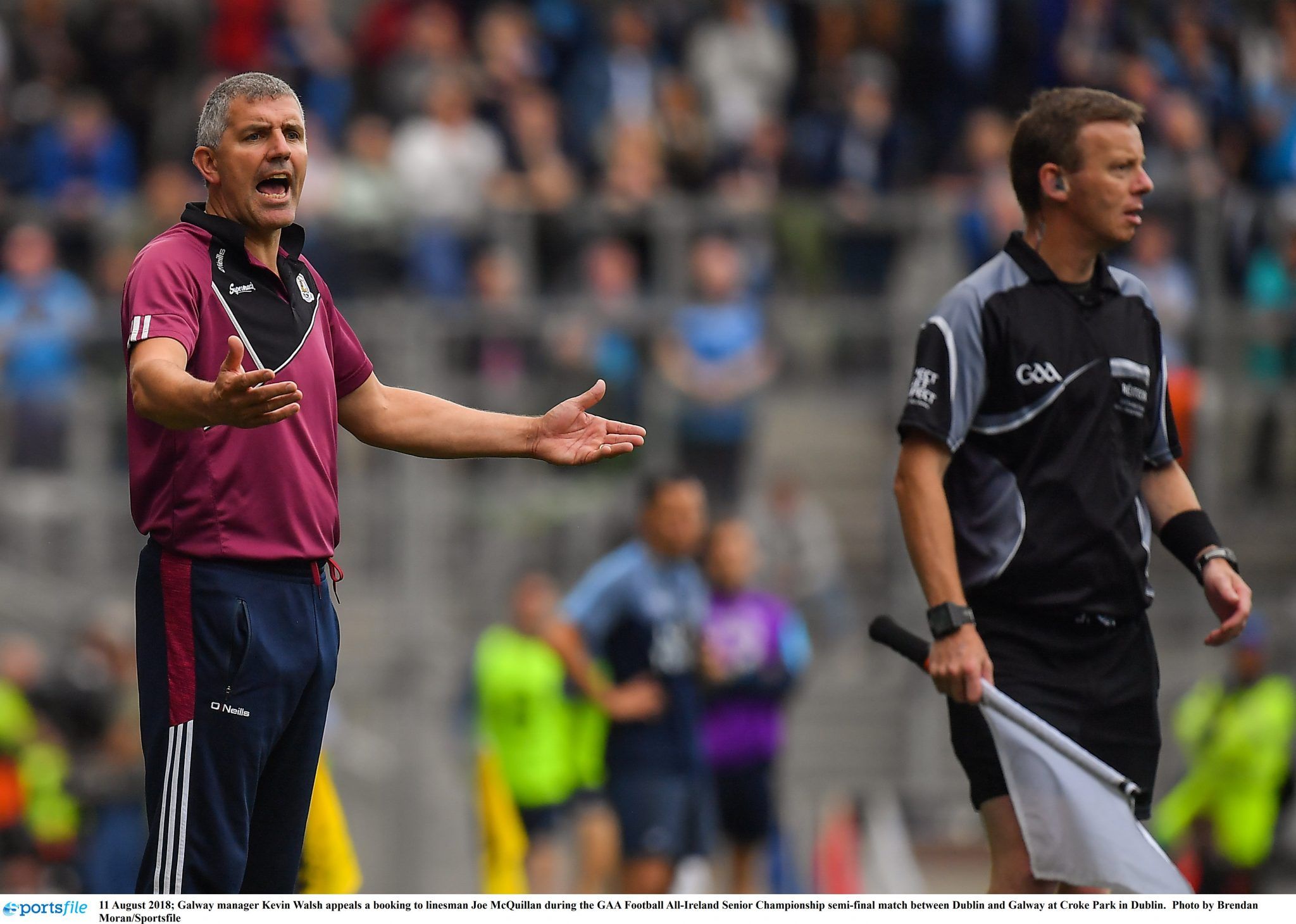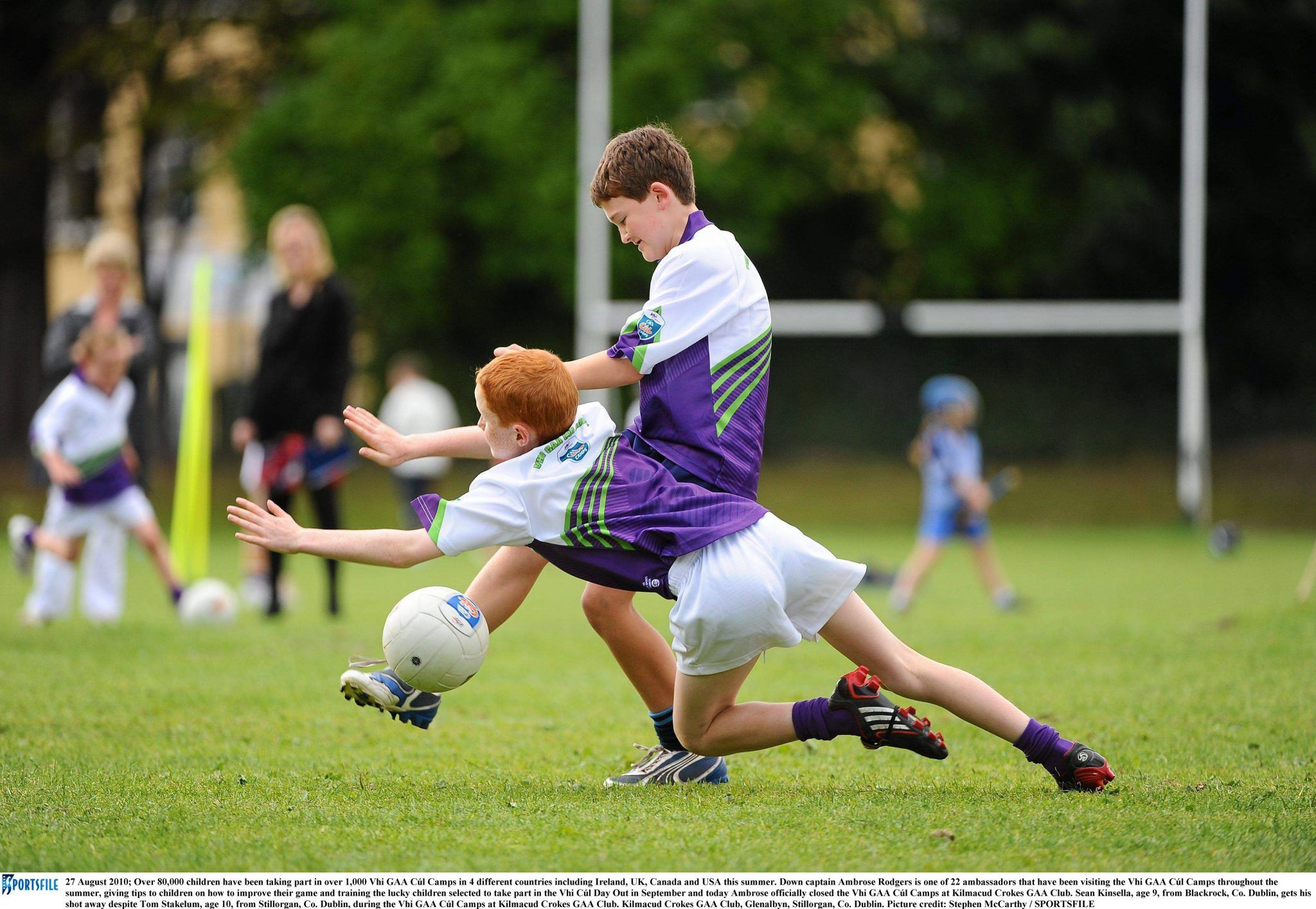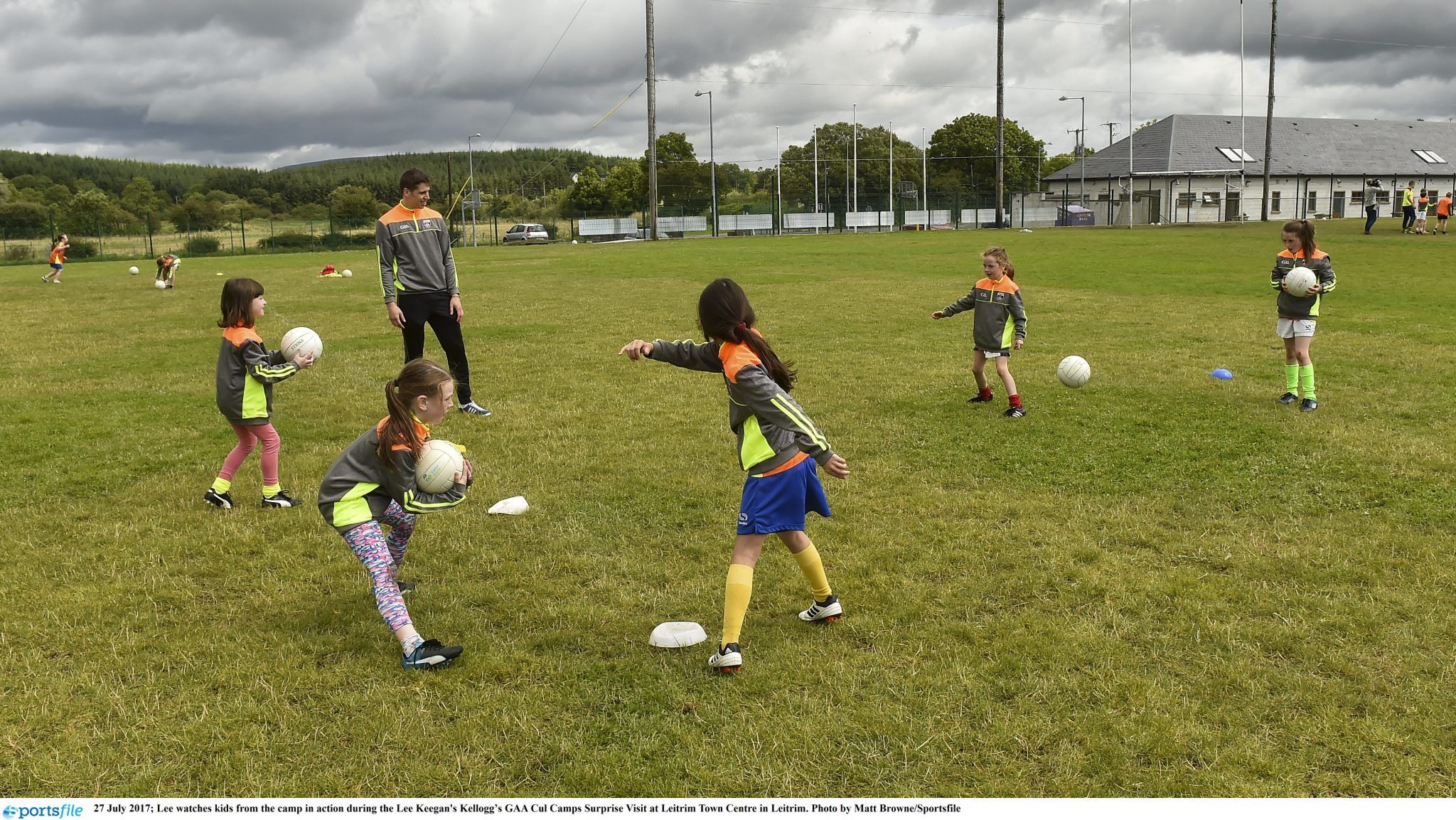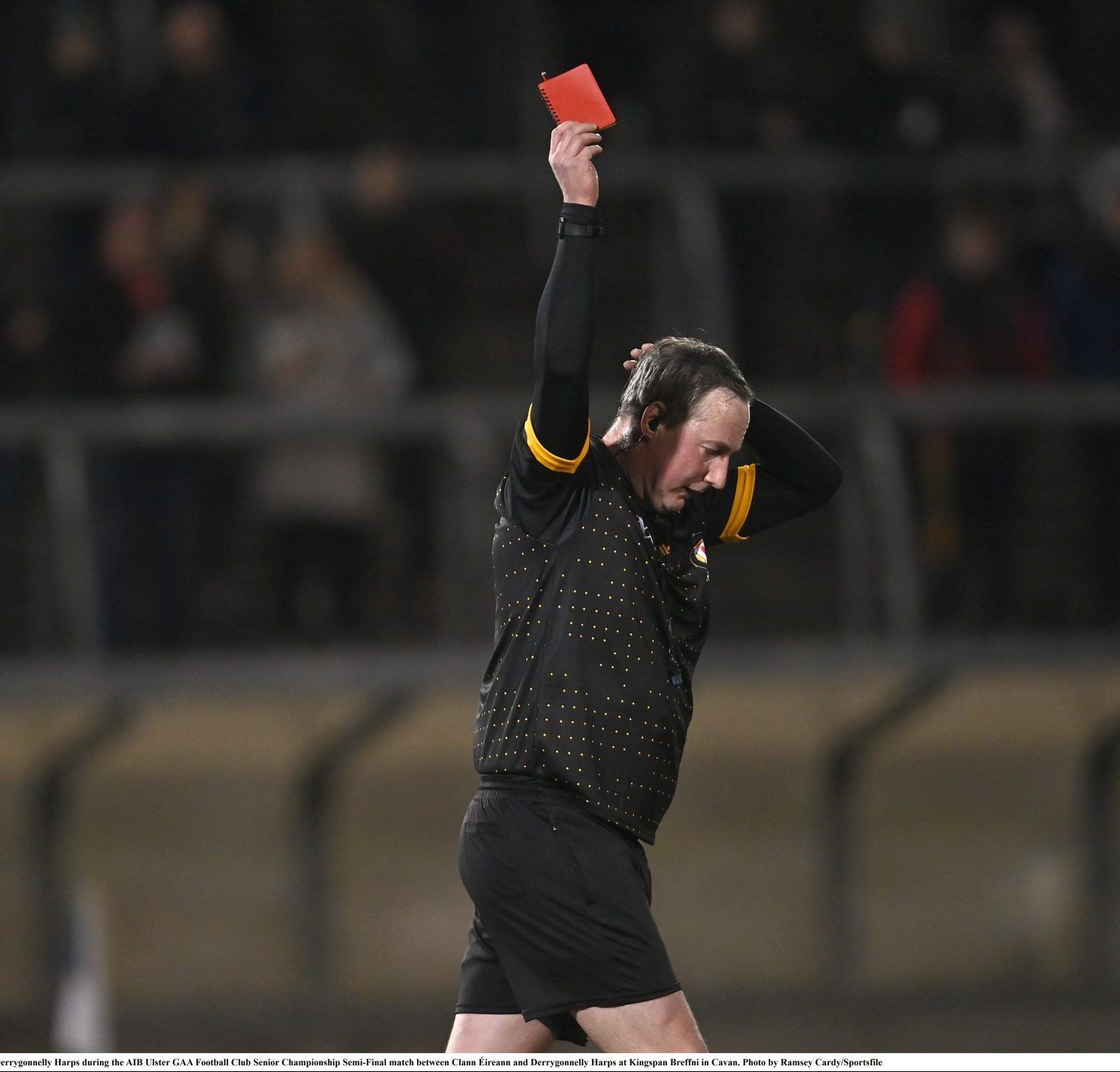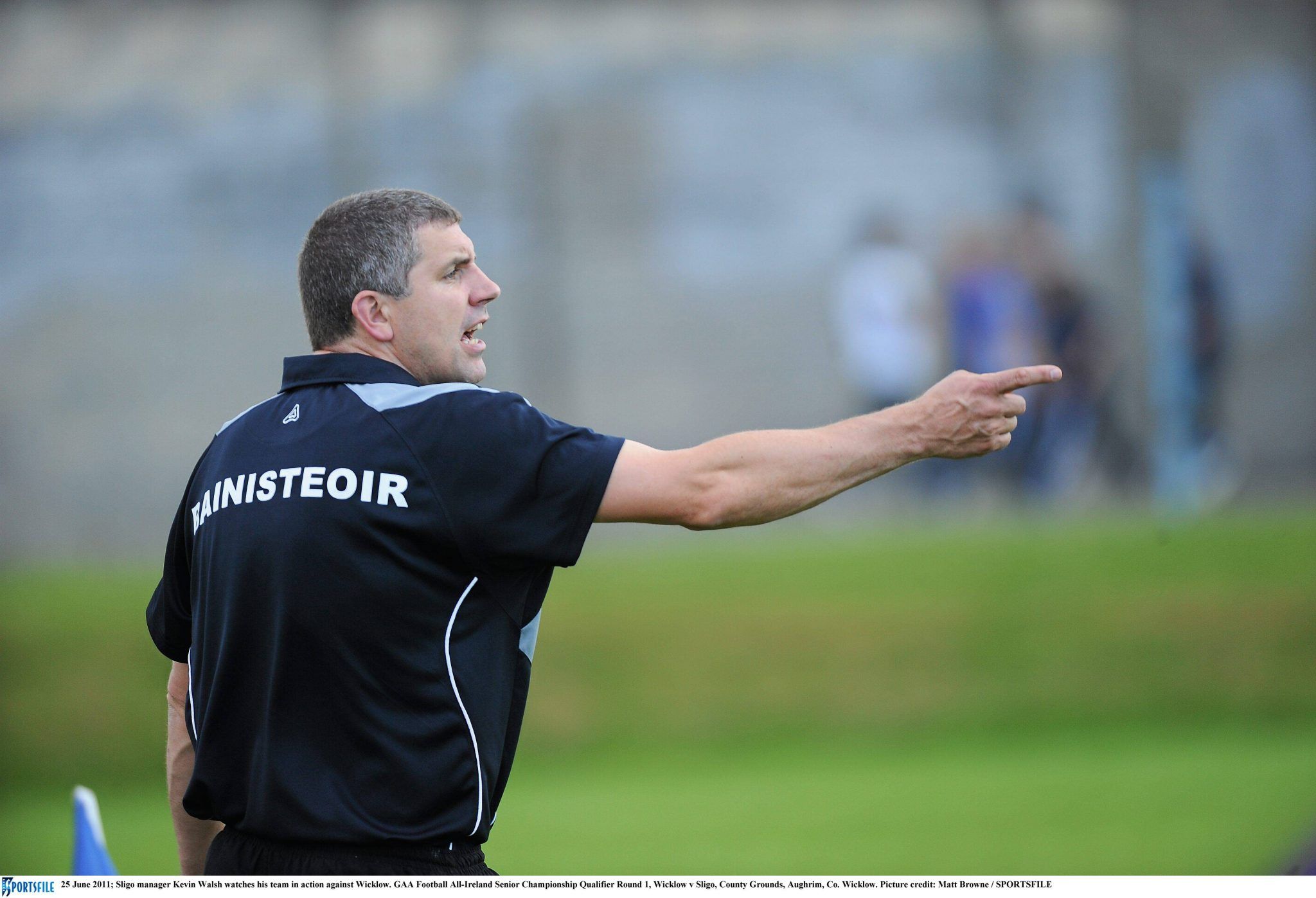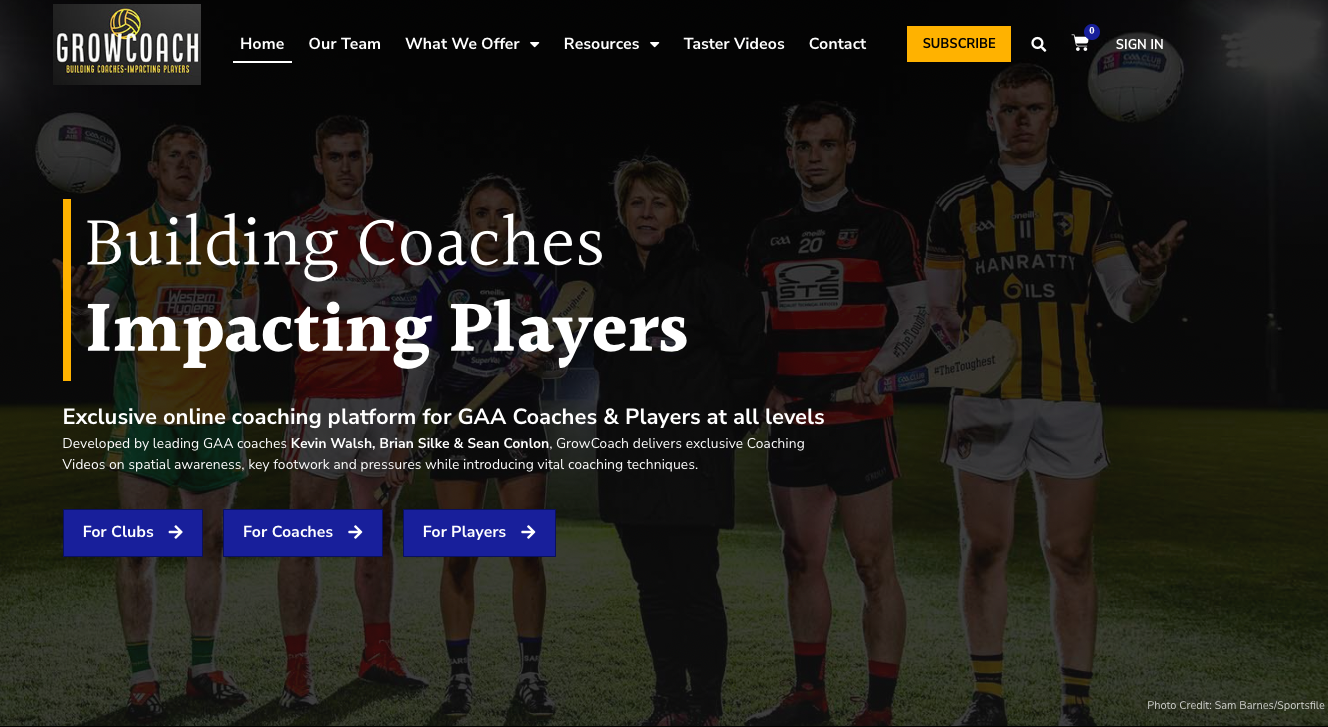“Sometimes you have to weed out some people, no matter how good they are, because you need to always think of your team.”
When you initially see Galway legend Kevin Walsh play for his county in the nineties and early noughties, your first impression is that he is a man-monster hybrid of a midfielder, due to his physical size and prowess.
Then when you watch his movement, see him constantly pointing, and talking teammates through matches, you realise he is a deep thinker of the game also.
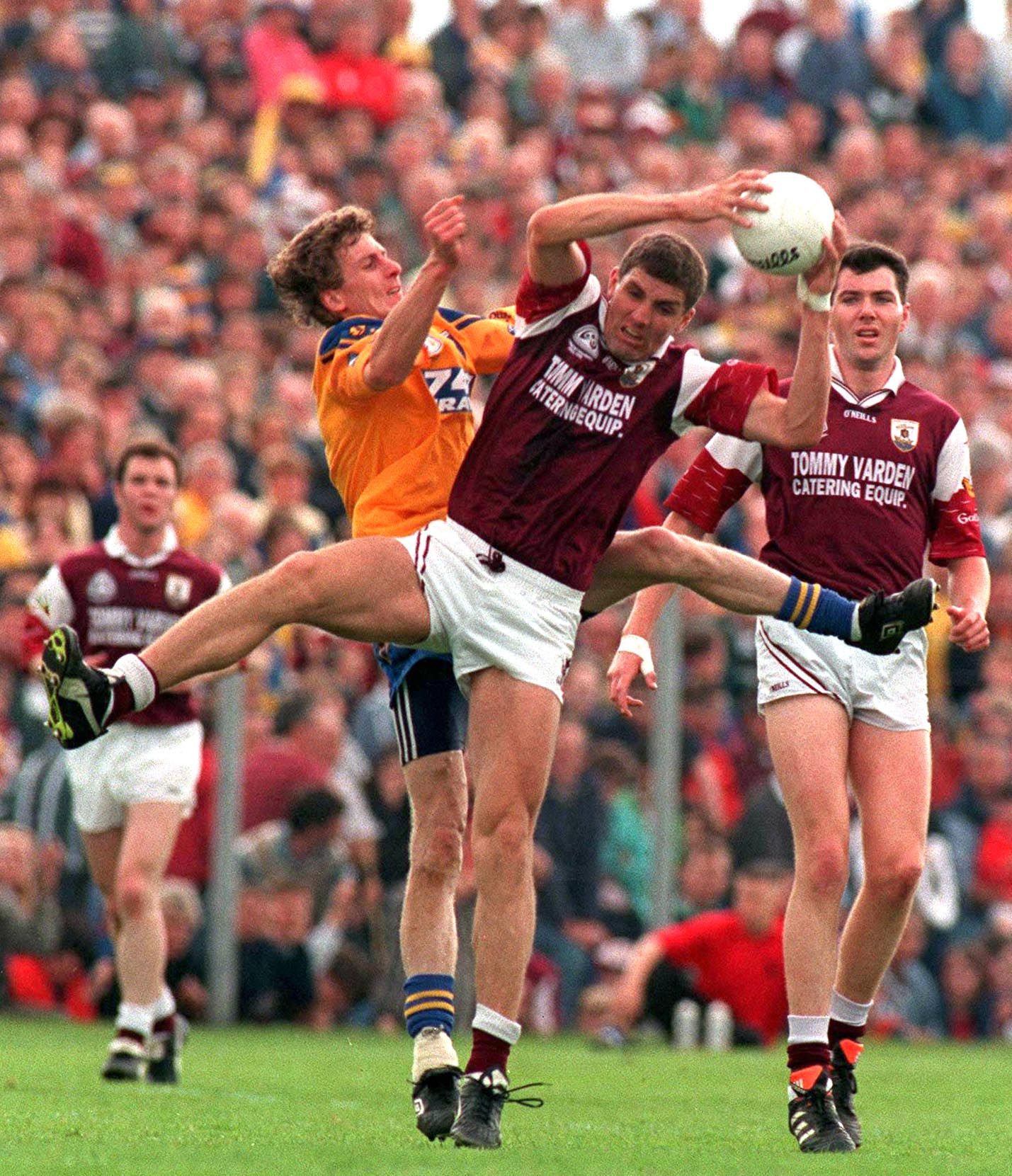 1 August 1998; Kevin Walsh of Galway in action against Gerry Keane of Roscommon during the Connacht GAA Football Senior Championship Final Replay match between Roscommon and Galway at Dr. Hyde Park in Roscommon. Photo by Matt Browne/Sportsfile
1 August 1998; Kevin Walsh of Galway in action against Gerry Keane of Roscommon during the Connacht GAA Football Senior Championship Final Replay match between Roscommon and Galway at Dr. Hyde Park in Roscommon. Photo by Matt Browne/SportsfileThis attribute is what served him best when the two-time All-Ireland winner made the leap into management after his retirement.
Walsh is obsessed with coaching and the GAA, so it was no surprise that after a successful time with Sligo, he took the helm of his own county, guiding them to Division One and bettering their fierce rivals Mayo on more occasions than not.
A student of the game and other sports, most notably basketball, Walsh has a deep conviction in his principles as a manager, but is always willing to learn and adapt.
In his new book, The Invisible Game, Walsh delves into the core of his coaching philosophy, particularly focusing on what players should be doing when they don’t have the ball.
In an inter-county game that lasts 70 minutes (plus roughly 10 minutes for injury time and stoppages), a player will actually only have the ball in their hands for an average of one minute.
This ratio of 79.1, is the foundation of a lot of Walsh’s teachings in this very insightful book, but just like every master in every field, there are always hurdles that will give you trouble.
Speaking exclusively to SportsJOE, the two-time All-Star reveals the three things that he finds most difficult to coach.
Bravery
“If someone has a bit of a yellow streak as I call it, well then, you are who you are. That is almost impossible to coach out of people.
“You could be the most talented footballer, but if you’re afraid of footsteps and shadows, then I find it very hard to coach that.
“It’s as simple as that.”
Bad habits.
“I talk a lot about football, I talk a lot about applying pressure, and I talk a lot about visual awareness, but all of those things need to be taught to youngsters, I can’t be strong enough on this.
“Bringing me into a Galway set-up or a Sligo set-up, when academies had been allowing this to go unchecked, then at best you’re going to be operating with a group of players at Division Two level.
“Like the bigger counties, why do they struggle? Coaching at underage, for me, all over the country, is shocking. A lot of academies in most counties have a lot of good volunteers, and I can’t go against that, but I would challenge just how much they know, to bring them youngsters through.
“So at 18, 19, 20, and when they start to come into senior, would all of those guys have the most good habits that they can have?
“I would challenge nearly any county on that, and then you have counties or even clubs like Corofin or Crossmaglen, where that’s not their culture.
“It’s an awful lot of high numbers, with a lucky amount of talent that comes through at the same time, and some big teams can hide behind that.
“But, if you want to consistently be competing at a high level, if you want to win All-Irelands, then your academy has got to get that right.”
Talented players with toxic attitudes
“Breaking down the personal habits and qualities of people is huge, because you could have very talented people, but everything they might do could be detrimental to the team.
“In my book I talk about three types of players – ‘Chess players, Gunslingers and Seagulls’ – Chess players being the high performers in high pressured situations, Gunslingers tend to be flashy mavericks with lots of ability but are potentially unreliable, and Seagulls will probably let you down, as they are there for themselves.
“How do you manage a Seagull? He won’t be bothered unless there is something in it for him. How do you manage the Chess player? You need to give them more confidence.
“Then you have got the Gunslinger, and you need him because he’s an entrepreneur, he’s trying all these different things and is probably skilful, but he might try and win the game on his own if things are tight.
“He would shoot from everywhere tight angles – and not stick with the system. Of course, you want people to try their own thing, but you have to balance that out between risk vs reward.
“So, sometimes you have to weed out some people, no matter how good they are, because you need to always think of your team.
“Unfortunately, this person might be the best player, but when you look at some these players internally, they could be holding back your team.”
This is only a snippet of the wisdom available in Walsh’s book, The Invisible Game, but you can access even more great content and teachings online at GrowCoach.
This website is the ultimate tool for all GAA managers and coaches, with archive footage of drills, match scenarios, and visual aids on certain issues and problems that managers would want to address and learn from.
You can visit the website here: GrowCoach

